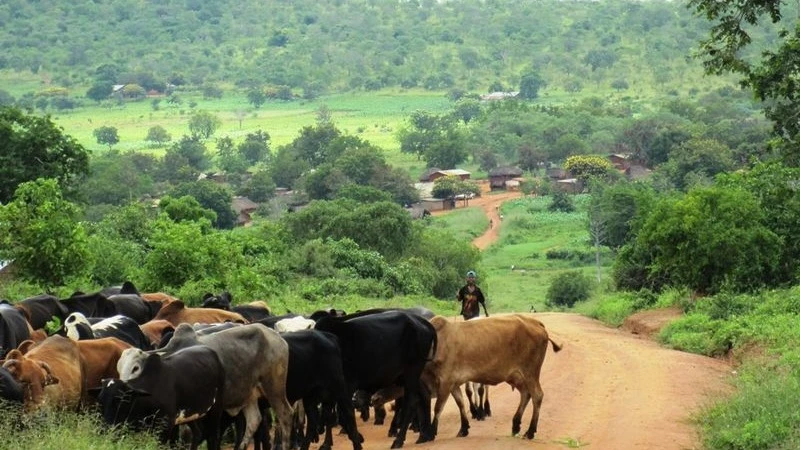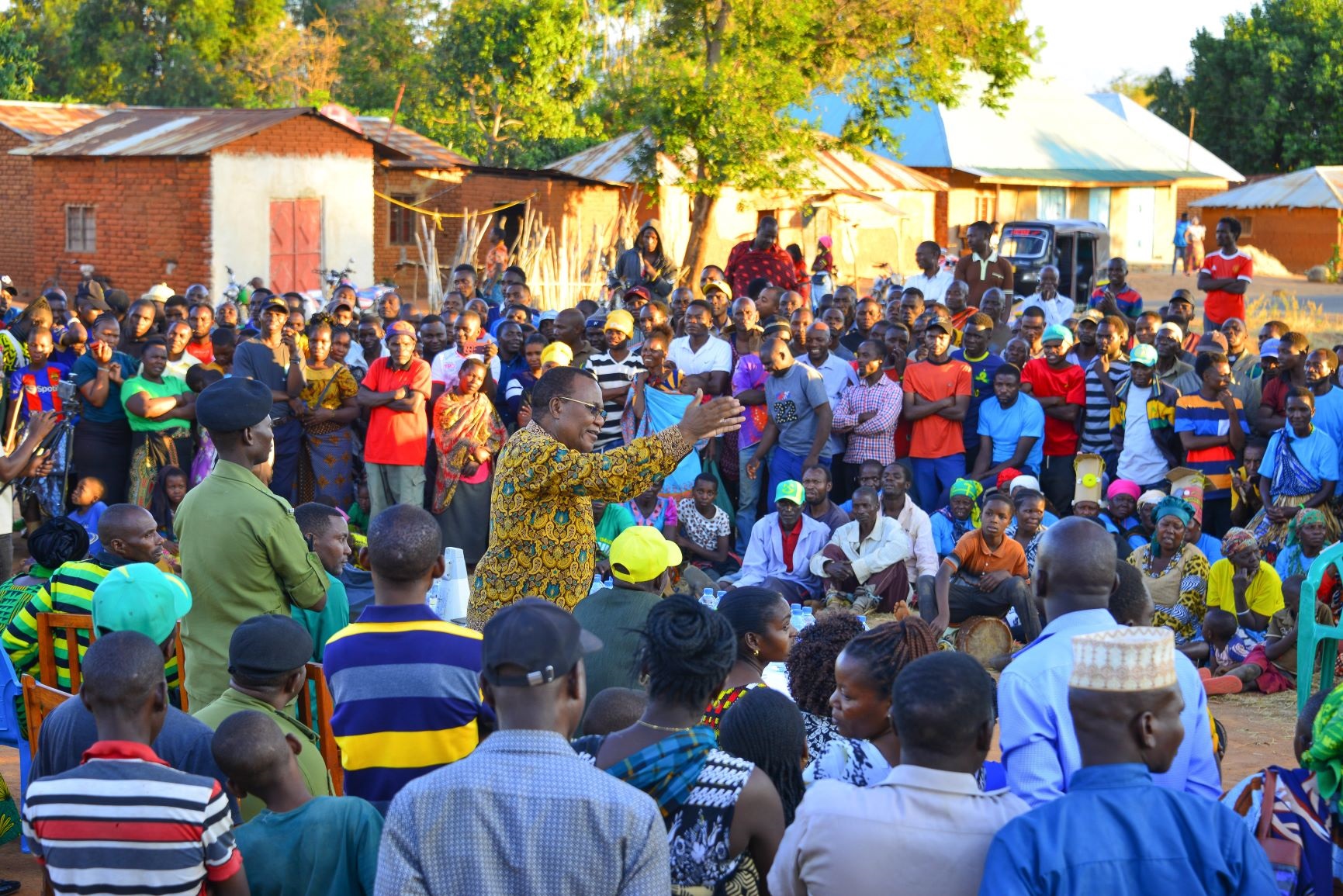Kilindi residents urged to cultivate cattle feeds

KILINDI District Council in the Tanga Region has urged its residents to cultivate grass species suitable for feeding cattle to reduce conflicts between farmers and pastoralists , as part of implementing the Integrated Forest Biomass Energy Solutions for Tanzania (IFBEST) project.
Kilindi District Commissioner Hashim Mgandilwa made this announcement last week during a visit from journalists and staff from the Tanzania Forest Conservation Group (TFCG) and the Tanzania Community Forest Conservation Network (MJUMITA), who were in the district to assess the IFBEST project's impact.
"Through the agriculture department, we encourage people to cultivate grasses for pastoralists to obtain fodder while protecting our natural forests," he stated.
Mgandilwa expressed gratitude to the European Union and the Ministry of Finance for their support of TFCG and MJUMITA in implementing the IFBEST project.
IFBEST funding has resolved boundary disputes between Lusane and Kitingi villages, an issue that had persisted for years.
"Kilindi District has not been significantly affected by deforestation, but we have strategies in place to conserve our forests and mitigate climate change impacts," he noted.
The project aims to ensure the safety of forests and foster conservation among residents.
Mgandilwa emphasized the importance of forests, stating, "While we seek economic opportunities, we must recognize the critical role forests play in our lives for future generations."
He highlighted the challenges posed by climate change, which can make it difficult for pastoralists to find pasture and water.
To combat deforestation, farmers are encouraged to cultivate smaller areas for higher yields.
Agricultural extension officers are available to teach modern farming methods, while pastoralists are urged to adopt improved cattle-rearing techniques. "During droughts, they can sell their cattle and reinvest the proceeds into other ventures," he advised.
Adam Sylvester, the Kilindi Natural Resources Officer, commended TFCG and MJUMITA for launching the IFBEST project in the region. Through this initiative, Kilindi District has designated 3,867 hectares of village land as forest reserves for community-based forest management.
Of this, 1,957 hectares are in Mapanga village and 1,910 hectares in Lusane village. Additionally, 549.1 hectares have been earmarked for sustainable charcoal harvesting, with 270 hectares in Lusane and 279.1 hectares in Mapanga.
The district has also conducted participatory forest resource assessments to identify suitable tree species for sustainable charcoal production. TFCG and MJUMITA have assisted villagers in developing land use plans, forest management strategies, and harvesting regulations.
With support from the European Union, villagers have established Village Savings and Loans Associations (VSLAs) to secure loans for income-generating activities, reducing reliance on tree cutting for charcoal and firewood.
A comprehensive land use plan for Lusane village has allocated land for various activities, including 1,914.9 hectares for forest conservation and 2,050.65 hectares for pasture.
The district collaborates with village natural resource committees to ensure legal protection of forests. Mapanga and Lusane villages have formulated by-laws for forest conservation and management, and the district oversees their implementation to ensure sustainable resource use.
Currently, Kilindi District has 36 village forests encompassing 27,156 hectares, 12 government forests totaling 29,084 hectares, and 103.7 hectares of tree farms.
Mng'anya Chrispin, the district's head of planning and coordination, announced plans to engage the Ministry of Livestock and Fisheries to obtain grass species for herds, which would reduce the need for pastoralists to migrate in search of grazing land.
Additionally, they aim to secure assistance from the ministry to construct cattle dips and charcoal dams for livestock keepers.
Top Headlines
© 2024 IPPMEDIA.COM. ALL RIGHTS RESERVED

























